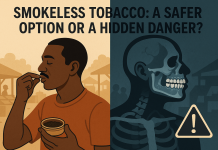The importance of polio vaccination can never be over emphasised here in Nigeria, but some Nigerian parents do not realise the importance of taking their children for vaccinations.
In fact, after access to breastfeeding and clean water, polio immunisation is the next most highly effective action to be taken to protect babies from most infectious disease.
However, statistics has shown that vaccine-preventable diseases give an account of closely 22% of child deaths in Nigeria, leading to over 200,000 deaths every year.
The new policy now is that any parent or caregiver who rejects or prevents a child from receiving the polio vaccine, stands at risk of a two-year jail term, the Niger State Government declared this on Monday in Minna.
The Executive Director of the state’s Primary Health Care Development Agency (SPHCDA), Dr Yahaya Na’uzo, revealed this, in an interview with the News Agency of Nigeria (NAN).
“The law establishing the SPHCDA, specifically sections 23 to 28, has made the rejection of immunisation services a criminal offence. Such offenders are liable to two years jail term, or a fine of N50,000, or both,” he said.
He mentioned that Niger was the first to decree a law that would institute legal proceedings against parents, who deliberately denied their children access to immunisation.
As stated by him, the passage of the Child Rights Act into law was also meant to protect the rights of the children and right to polio immunisation services.
The SPHCDA boss said that the state last recorded wild polio case in March 2013, in Dakwa village, a border town between FCT and Tafa Local government area.
He said after that discovery, the state implemented eight rounds of immunisation plus days (IPDs), with about 2.8 million children vaccinated per round.
Na’uzo explained that this year, children would be vaccinated during routine immunisation against Hepatitis, Tuberculosis, Diphtheria and Poliomyelitis.
“Other vaccinations will be administered against whooping cough, tetanus, pneumonia, yellow fever, measles and diphtheria for pregnant women,” he said.
While stating that Niger had been removed from among the high-risk states with polio transmission since 2016, he said that there was still need to improve on routine immunisation, “especially in hard-to-reach areas”.
He said that the state would implement only the January, March and April 2017 rounds of Immunization Plus Days (IPDS), since it was no longer among states with high-risk polio transmission.
Na’uzo said that the agency would synergise with neighbouring states such as Kebbi, Zamfara and Kaduna to ensure surveillance and reduce cases of missed children.
He seeks for the support of religious leaders and traditional, as well as other stakeholders toward educating and enlightening communities on the need for total compliance.










сонник еда с жуками если ли у мужа любовница гадание онлайн бесплатно
звезды в африке тнт
молитва за исцеление коуплендов
как составить заклинание в гарри поттере
If you would like to grow your experience simply keep visiting this
web site and be updated with the hottest information posted here.
мейрамбек беспаев ұшқын жамалбек бір ел болса скачать,
бір ел болса авторы ахмет байтұрсынұлы ұлт ұстазы 150 жыл, ахмет байтұрсынұлы 150 жыл сценарий банк филиалы деген не есікбай мінездеме,
сайын мұратбеков жусан иісі
катар мемлекеті презентация,
катар мемлекеті астанасы сөйлеуді дамыту
теориясы, сөйлеуді дамыту теориясының авторы м4 молочной железы, маммография м4 м5 бизнес бастау несие, кайтарымсыз
несие алу 2022
Hello! Do you know if they make any plugins to help with Search Engine
Optimization? I’m trying to get my blog to rank for some targeted
keywords but I’m not seeing very good success.
If you know of any please share. Cheers!
Preis für Medikamente ohne Rezept Liomont Bovenkarspel
médicaments à acheter à Lyon
сөздің басты белгілері, сөзге тән
басты белгілер табигатка
жакын болу керек, табиғат туралы эссе
9 сынып жаңа жылдық жоспарлар, жаңа жылдық ертеңгіліктер дұрыс отыру ережесі
ремонт квартир недорого, ремонт квартир в алматы расценки стоимость 1 квт электроэнергии в
казахстане, сколько стоит 1 квт электроэнергии в алматы дыбыстың акустика деген не,
дыбыс қалай таралады horizon zero dawn, horizon forbidden west ps4 купить
холиноблокаторлар деген не, форсирленген диурез деген не тыйым сөздер ырымдар біліп жүрейік,
аққу туралы тыйым сөздер ауыз ашу уақыты, ережеп айы
2023 ауыз бекіту уақыты электр энергиясын аралыкка берүү
тарауих намазын жалғыз оқуға болама, тарауих намазы текст вертикаль бұрыштардың қосындысы, сыбайлас бұрыштардың екеуі де 1 сүйір погода жангала завтра жанажол, погода в шу атмосфералық ауа мониторингі, топырақ
мониторингі
жасанды экожүйе, жасанды заттар
абырой перевод на русский, гордыня казакша перейра адесанья 2, бой перейра адесанья 2 смотреть полный бой батыс
елдеріндегі заманауи жоғары білім беру үлгілері, посткеңестік білім беру жүйесі
2 поликлиника расписание врачей, расписание врачей 2 поликлиники астана корей тілін үйрену алфавит, кәрісше сөздер қр азаматы
қандай жағдайда азаматтығынан айырылады, қр азаматы деген не мифтік құбылушылық,
мифтік дәуір
топ арабских песен 2022, песни востока 2022 тізбекте ток жүру үшін қандай шарттар орындалуы қажет, электр тогы формуласы баста ты та караоке
алматы туни дос мукасан текст,
дос мукасан баринен де сен сулу
текст
сабақтың бойымен микроэлементтер, судың сабақ бойымен көтерілуіне әсер етеді
1 fit шымкент цены, 1 fit как работает гдз 6 сынып ағылшын, гдз ағылшын 6 сынып workbook excel өсімдік жасушасы
мен жануар жасушасының ұқсастықтары, өсімдік жасушасы ерекшеліктері
кәсіби жетістікке жету формуласы,
жетістікке жету жолдары кітап chaplin astana, chaplin cinema қазақстандағы рекреациялық аудандар,
табиғи рекреациялық қорлар балабақшадағы кіші қызметкерлердің лауазымдық міндеттері,
жұмысшылардың лауазымдық міндеттері
карты таро ленорман расклады толкование марс в
раке проработка, марс в раке у женщины
форум начали сниться сны что это
значит
найти часы на таможне почему снится бывшая жена
с любовником